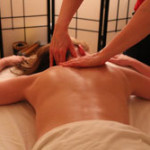 Although very popular, there are many components of massage therapy that are commonly misunderstood.
Although very popular, there are many components of massage therapy that are commonly misunderstood.
1.Anyone Can Call Themselves a Massage Therapist
Massage therapists must undergo intensive training, typically via a two-year program with 500-1000 hours of hands-on experience monitored by an instructor. Massage therapy students complete advanced coursework in anatomy and physiology and are very knowledgeable about the body’s muscle groups and structure. The majority of states regulate massage therapists through licenses or certifications and a reputable massage therapist will have met this criterion. Massage therapists may even seek additional advanced certifications such as choosing to become board certified by the National Certification Board for Therapeutic Massage and Bodywork.
- Massages Have to Feel Painful to Heal You
Many people endure a painful massage under the impression that this is what is needed for the muscles to relax. This is absolutely untrue; a massage should not cause you to feel pain. Massages are supposed to be relaxing and different people find varying degrees of pressure to be most relaxing. If you feel uncomfortable during a massage therapy session, your therapist wants you to speak up! They can adjust their technique to increase your physical comfort. If you have chosen a heavier massage technique such as deep tissue massage, discomfort can come from the techniques used to relax muscle tension, but still speak up if you are in pain.
- Massages Only Treat Sore Muscles or Injuries
Massage therapy is truly for everyone! A massage therapist can certainly help pinpoint the root of your muscle soreness or stiffness and provide treatment, but massage should also be considered a preventative therapy. Regular massage not only treats but helps prevent sore muscles and injuries by relaxing tension as well as the whole-body benefits of increased immunity, lowered stress and blood pressure, better sleep, and enhanced feelings of well-being. Don’t wait for a sore back or a stiff shoulder to try a massage!
- Massages are a New Trend and their Benefits are Unproven
Massages are most definitely not a modern, passing trend! Massage therapy is noted in ancient Chinese medical texts as well as in Egyptian tombs, it is here to stay and for good reason! Medical research has connected massage with positive benefits such as lowering levels of cortisol, a hormone associated with stress, in the blood. Research also demonstrates a connection with increased immunity to communicable disease, less frequent headaches, and a helpful complimentary treatment for those suffering with chronic illness such as anxiety or depression.
- Massage Results are Temporary
A well-trained therapist cares about your massage experience but also about how you will continue to feel in the days and weeks between massage sessions. Muscles have a long-term memory and holding them in awkward positions such as craning your neck to use the computer or poor posture can cause long-term pain, numbness and tingling. Your chosen therapist should be able to recognize your pain patterns and help retrain your muscle groups through massage.
Contact us today for how we can help you!